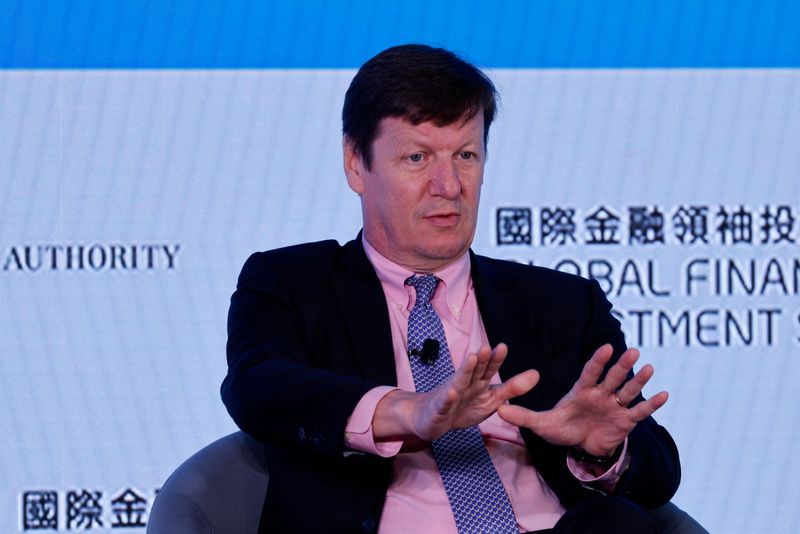Who is Kevin Hassett? Wolfe looks at the Trump ally tipped to become Fed Chair.
By Nell Mackenzie and Chiara Elisei
LONDON (Reuters) - Hedge fund Man Group Chief Executive Luke Ellis believes central banks have not tamed inflation and threats to the broader economy persist, he said on Wednesday.
"The bigger picture is that central banks think they've done a lot but they haven't really made much difference to inflation at all," Ellis said at a press event. Rate rises have made a dent in manufacturing but not in services, he added.
The World Bank said that real global gross domestic product is set to climb 2.1% this year, in its latest Global Economic Prospects report.
That's up from a 1.7% forecast issued in January but well below the 2022 growth rate of 3.1%.
Markets have experienced massive upheaval in 2023, prompted in part by two of the three largest banking failures in U.S. history while Swiss lender Credit Suisse was bought by rival UBS Group AG (SIX:UBSG.S) in a deal engineered by Swiss regulators.
But recent economic woes won't follow the same pattern of recent financial crises of 2001 and 2008, when central banks were able to come to the rescue, said Ed Cole, managing director of discretionary investments at Man GLG who was a part of the roundtable presentation at Man Group's London headquarters.
The recent banking crisis resembles the savings and loan crisis of the 1980s which played out for a much longer period.
This took a decade, said Cole, while banks scrambled to fund themselves. Inflation pushing costs up has already been eroding markets in the form of many companies' costs rising more quickly than their sales growth which would eventually hit stock price performance, he said.
More than 1,000 savings and loan (S&L) institutions were wiped out throughout the 1980s, resulting in up to $124 billion in costs to taxpayers.
The upheaval was rooted in the unsound real estate and commercial loans made by S&Ls after the United States removed interest-rate caps on their loans and deposits, which allowed them to take on more risk.
Today's commercial real estate sector remained a top concern, said Sriram Reddy, managing director for credit at Man GLG.
Reddy noted that the outlook for companies in Europe is more positive than U.S. peers, given they have less leverage and higher credit quality on average, adding that default rates in Europe could be between 3-6% versus high single digit in the U.S. high yield market.
